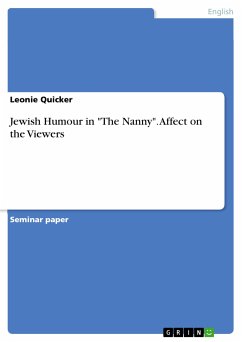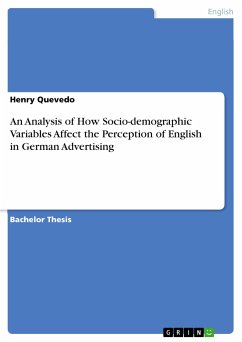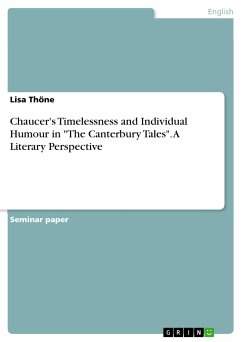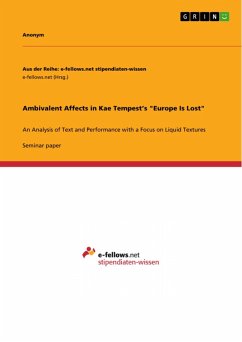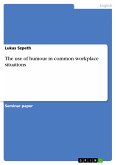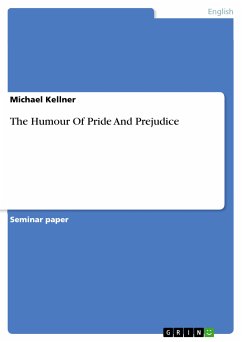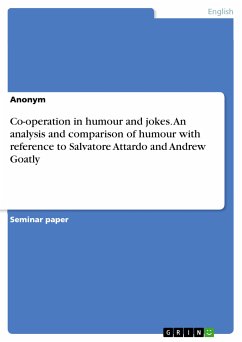Seminar paper from the year 2019 in the subject English Language and Literature Studies - Culture and Applied Geography, grade: 2,0, University of Paderborn, language: English, abstract: This term paper is set out to investigate how Jewish humour is represented in "The Nanny" and what kind of affect it has on the viewers. To shed light on this matter, this research paper will first talk about the way humour is used in Jewish history in order to handle and cope with the past and the way it might vary depending on the medium for which it is used for. These findings and elements will be taken into consideration for the following analysis of the first and last season of The Nanny series, since some audiences have mentioned a negative change in humour and content in comparison to the first released episodes. Afterwards, these comparisons and findings will once again be compared to general reviews of the audience, thereby, this term paper wants to answer the question of the function of humour in The Nanny and whether the viewers accept this way of processing the past or if it failed by ridiculing history. When I was a child, I watched The Nanny every day after school and enjoyed every minute of it. I laughed; I cried and felt for every character on screen. However, the only thing I never really understood until I was older, was the Jewish humour, or rather the jokes, which they make about the Jewish traditions and religion. I laughed anyway, because the atmosphere and setting in which it was told, was set to make you laugh. However, after learning everything about the history of the Jewish religion, re-watching the show felt slightly different. It was still entertaining and meant to be funny, but there was some seriousness and uncomfortable feeling going along with it and personally raised the question of how The Nanny series had been perceived among the Jewish community.
Dieser Download kann aus rechtlichen Gründen nur mit Rechnungsadresse in A, B, BG, CY, CZ, D, DK, EW, E, FIN, F, GR, HR, H, IRL, I, LT, L, LR, M, NL, PL, P, R, S, SLO, SK ausgeliefert werden.

